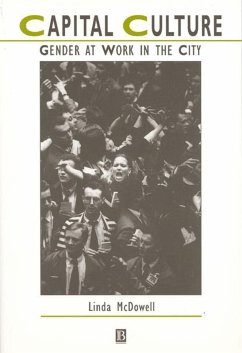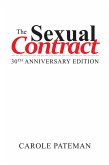Dieser Download kann aus rechtlichen Gründen nur mit Rechnungsadresse in A, B, BG, CY, CZ, D, DK, EW, E, FIN, F, GR, HR, H, IRL, I, LT, L, LR, M, NL, PL, P, R, S, SLO, SK ausgeliefert werden.
"In a short review of this type it is impossible to do full justice to such a rich and thought provoking book." Rob Atkinson, Capital and Class
"This book deserves a wide audience: students of the service sector should find McDowell s theoretical and conceptual insights about this topic useful; students of gender and work will encounter a carefully drawn case study of how gender distinctions are constructed and reproduced on the job. Finally, those interested in cultivating links between their sociological and geographical imaginations will find that Capital Culture can help them to achieve this goal." Amy S. Wharton, Washington State University.
" I cannot recommend this text highly enough. it has everything: theory linking gender relations with power and work; analysis of city gendered life; rich empirical material taken from fieldwork in merchant banking; and, many thought provoking views on macsulinity and feminity." Bob Bushaway, University of Birmingham









